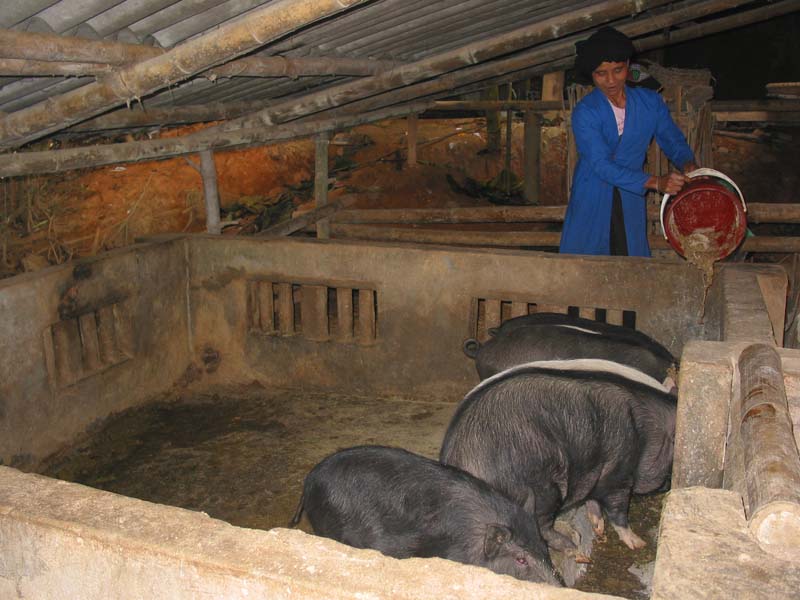



The pig raising family of Muong Chieng
Commune (Da Bac) manages the Indigenous pig herds at the cages to protect from
the diseases.
With more than 16,000 pigs, the local
indigenous pig population in the district accounts for more than 50% of the
total population of the province. Pig breeders are mainly ethnic minorities of
Muong and Dao ethnic groups. There is a fact that the habit of raising
indigenous pigs popularly has led to uncontrolled diseases. In addition, the
risk of genetic loss due to crossbreeding, crossbreeding among other pig
species, inbreeding quality, and near blood inbreeding, a decrease in the
number of originally indigenous pigs at the time of the survey before 2014 was
at at the urgent level. One of the objectives of the Project is to make
changes, change the method of old livestock raising to managed livestock
raising.
The 6 selected communes were Tan Pheo, Giap
Dat, Muong Chieng, Cao Son, Doan Ket and Hien Luong, propaganda and
dissemination activities together with technical training on animal husbandry,
care and disease prevention for indigenous pigs to the vet staff of the
communes have been implemented to support the farming households for actively
deploying. In particular, each commune has formed a group of indigenous pig
breeding. Since April of 2018, the Project has provided initial support to the
activities of cooperative groups. Specifically, they assisted in buying and
handing sows and male pigs of breeding directly to 90 households participating
in the model, each household had 2 sows, each cooperative group had a male pig.
The delivered pigs were purchased from local indigenous pig producers in the
area with careful selection and healthy, disease-free, ready for breeding.